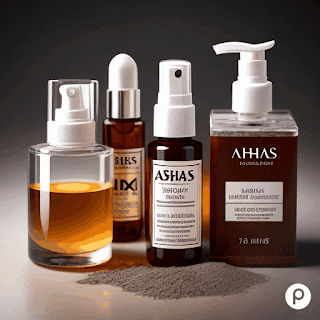
Top Skincare Ingredients to Avoid with AHA
Before you decide to bring any new item into your skincare routine, it's important to know how it might interact with other products you already use or supplements you are taking. This is especially true when it comes to products that contain AHAs, also known as alpha hydroxy acids.
These AHAs are found in various beauty products, according to the U.S. Food and Drug Administration (FDA), but their primary purpose is to promote skin exfoliation. Healthline cites benefits of AHAs, including skin brightening and wrinkle-reducing effects that are likely to appeal to consumers.
However, you will want to keep an eye out for AHAs in the products you use, as some ingredients should not be mixed with these acids for health reasons. According to Everyday Health, some of the key ingredients to avoid with AHAs include retinol and other retinoids unless the product has been specifically approved for safe use together. Combining these ingredients can lead to irritation.
Regarding the combination of retinol and AHAs, a dermatologist advises, "I strongly advise those also using retinoids for acne or anti-aging to be cautious, as the combination with different acids may cause excessive skin irritation and redness. In fact, AHA and BHA shouldn't generally be used together with retinoids on the same day."
Also, be cautious when using vitamin C with AHAs, as vitamin C is also acidic. According to the same source, niacinamide and AHAs also shouldn't be used together. (Skincare.com has further information on how both niacinamide and AHAs can be used safely.)
Products to Mix with AHAs
While there are many products to avoid using in combination with alpha hydroxy acids, some are recommended to blend with AHAs. A dermatologist explained that using an AHA with a moisturizer is beneficial. The board-certified dermatologist said, "Moisturizing after applying AHA and BHA is extremely important to limit irritation. Look for ceramides, petrolatum, hyaluronic acid, and glycerin to hydrate and soothe the skin."
Discussing experts' views on AHAs, another dermatologist favored lactic acid as an AHA and suggested the use of AHAs and vitamin C in combination, citing the pH levels of both ingredients despite the previously mentioned advice to the contrary. However, be sure to consult with a doctor.

